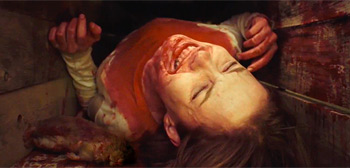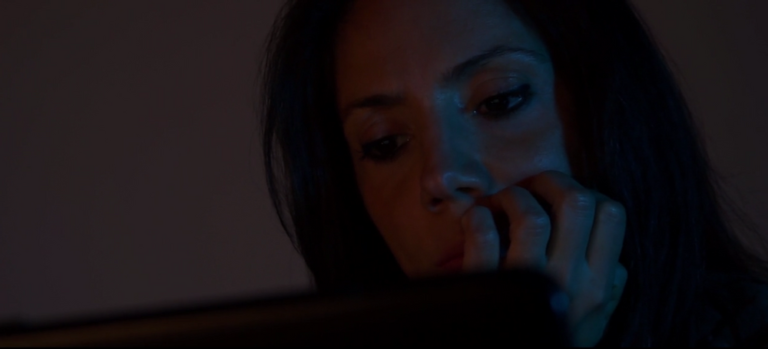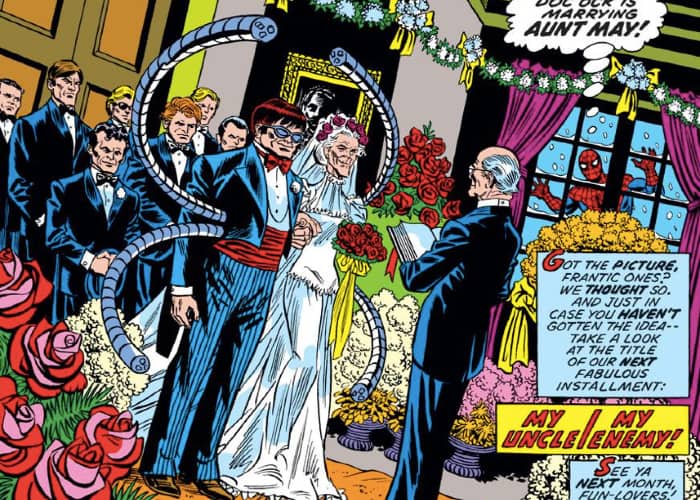ALLEN V. FARROW, Episode One: The Idyllic Family, Shattered
Now in its third decade, the tumultuous breakdown between Woody Allen and Mia Farrow has been highly publicised and covered from just about every angle. The advent of #MeToo and Dylan Farrow‘s open letter in the New York Times has reignited what was a dormant issue. Yet now this sleeping giant of animosity has awoken again, old ground has been recovered, old evidence scrutinised with fresh eyes, and new conclusions have formed. The question is whether those conclusions are the correct ones — indeed, whether or not this whole affair is a Sisyphean tragedy bound to play out without resolution ad infinitum. If there’s one thing HBO’s new documentary series Allen v. Farrow has managed not to do, at least in this, its first episode, provides us with anything new or substantial which may change the outcome of the case.
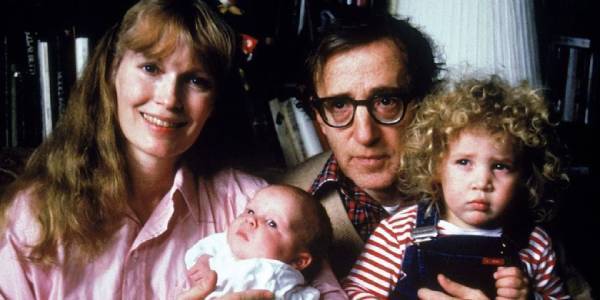
Here’s what we do know: in 1992, Mia Farrow, Woody Allen’s partner at the time, discovered naked pictures of her adopted daughter Soon-Yi Previn on the mantel in Allen‘s home. Allen confessed that he had been having an affair with Soon-Yi — despite having no recorded birth certificate and thus having no definitive, official age — was at least 30 years Allen‘s junior, probably in her late teens/early 20s, depending on which account you believe of the time the affair began. The media storm this affair created was immense and predictable. Allen and Farrow had been together for over 10 years and made several movies together. Theirs was the quintessential Hollywood romance, now in a devastating freefall.
The Allegation
Later that same year, Farrow alleged that Allen had sexually abused the couple’s young daughter Dylan, who was seven at the time. Farrow documented this with a series of videos in which she interviewed Dylan about what happened: in those videos, Dylan admitted Allen had touched her “private parts”.
We know there was an ensuing legal case, which was varied and complicated. We know that Allen sued for custody of his children, Dylan and Satchel (who later changed his name to Ronan), but was denied this. We also know that the judge rejected the allegation of sexual abuse, adding that Allen‘s behaviour towards Dylan was “grossly inappropriate and that measures must be taken to protect her,” while stating he did not believe the behaviour was sexual in nature.
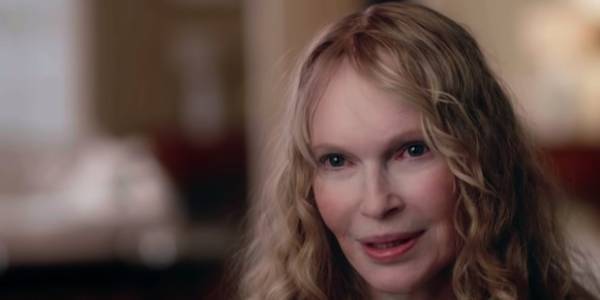
There have been many appeals over the years, attempts to overturn the rulings, but the case faded into infamy after a time until Dylan Farrow wrote an open letter in the New York Times, which reignited the case. And now we have this four-part documentary series, helmed by Kirby Dick and Amy Ziering, both expert documentarians.
“There’s so much misinformation,” Dylan Farrow tells us at the beginning. “So much obfuscation…no matter what you think you know, it’s just the tip of the iceberg.” This is a promising start because, in order to put the case to bed, any misinformation should be cleared up. Any obfuscation settled so that the truth will come out. And yet, this first episode is so bewilderingly one-sided that it’s difficult to make any judgement at all.
The Idyllic Family
The first episode predominantly covers the early years in the Farrow household. Homemade video footage shows the kids playing dress-up, swinging fake swords, and wearing armour. Other footage displays the various trips the family took over the years to locales, such as Venice. It all feels very idyllic. Then ominous music plays over footage of Allen cuddling a young Dylan. Much has been made of Allen‘s obsession with his young daughter, but there isn’t much in these home videos that one might consider particularly damning.
An early segment runs through Allen‘s career, with talking heads supplied by film critics Alissa Wilkinson, Miriam Bale, and Maureen Orth of Vanity Fair. This segment talks about Allen‘s fame, and his deep connection with New York. We are shown a highlight reel of some of his most successful early films, including Annie Hall, Sleeper, and Stardust Memories. Allen is humanised in this segment, as the critics discuss his ability to convey deep human emotions that were rarely discussed at the time (such as the now-typical neurosis riddled leading man Allen made his signature). “He makes you think about that part of yourself that’s unsure and neurotic,” says Claire Dederer, writer for the Paris Review. “You don’t hate it quite so much because it’s being framed so appealingly.”
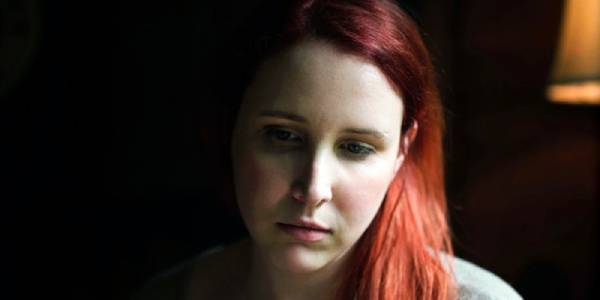
Later, we’re introduced to Mia Farrow, the matriarch of the family. She is quiet and demure, humble about the auspicious beginnings which gave rise to her success. Mia Farrow will be the backbone of this episode, taking us through her early years, her introduction to Allen, their whirlwind romance framed in the background of bustling New York, and her attempts to begin a family with him, a man notoriously famed for his commitment to being a bachelor. It’s an intriguing juxtaposition and at least from Farrow‘s perspective shows an indifferent side to Allen as a partner and a father. This is backed up in part by excerpts from Allen‘s autobiography, Apropos of Nothing, which is read out by Allen himself for the audiobook. These excerpts are as close as we’ll get to Allen‘s version of events here. He admits he didn’t want children, giving in to Farrow‘s requests in order to make her happy, but found himself “falling in love” with Dylan over time. Later, Farrow would become pregnant (Dylan was adopted), and Allen went on record claiming he wanted a little girl. Farrow says he was disappointed when their son, Satchel, was born.
This is when the insidiousness begins. While Farrow recuperates from her difficult birth, Allen becomes more and more attached to Dylan, who friends of the Farrows describe in interviews here as becoming more and more distant. Farrow describes Dylan‘s behaviour as being “like a dead animal.” Then Ronan makes an appearance, stating that “over time, Dylan went from being outgoing and effervescent…to her having this sadness and this withdrawn quality.” It’s a fairly strange comment given that Ronan Farrow could not have been any older than three or four at the time.
We are given back to Dylan herself, who describes the scene of her abuse; these memories are also damning and, at times, spine-shiveringly uncomfortable. Allen lying in bed with Dylan, both in their underwear; Allen with his face in Dylan‘s lap. Dylan contextualised this as normal behaviour for fathers, after all how would she know anything different? It is often brutally uncomfortable to watch, and Dylan‘s trauma here cannot be dismissed.
The Affair
The final moments concentrate on the revelations of the affair between Allen and Soon-Yi. This also shows Allen in a horrible light; the heartless abuser who stole one of Mia Farrow‘s daughters and molested the other. The implosion is about to begin, we’re led to understand. Allen‘s actions destroyed the tranquillity of this family.
Dylan is given the final word. “I remember my mom told me and Ronan, ‘Daddy took naked pictures of Soon-Yi‘ and that was the first instance I thought ‘Oh, it’s not just me.’”
A final title shows that Allen has denied all allegations regarding the sexual abuse, but it feels like a weak addendum given we’ve spent an hour with the Farrow family on this subject. A case with this level of complexity deserves all sides of the story told, the better for conclusions to be reached in a justifiable manner.
Conclusion
As it is, Ziering and Dick have crafted a compelling first episode comprised of never-before-seen home footage and intimate interviews with key players in this whole sordid drama, but unfortunately, the balance is completely off, which robs it of any real resolution. It’s a shame, too, because you feel the directors have more than enough capability to get to the roots of the issue. Ultimately though, it feels like a propaganda piece so far. Perhaps balance will be restored in later episodes.
As we go along with each episode, we’d love your views on the documentary and the wider drama as a whole. Please let us know your thoughts in the comments below!
Allen v. Farrow is available to watch now on HBO Max
Does content like this matter to you?
Become a Member and support film journalism. Unlock access to all of Film Inquiry`s great articles. Join a community of like-minded readers who are passionate about cinema – get access to our private members Network, give back to independent filmmakers, and more.
Join now!
